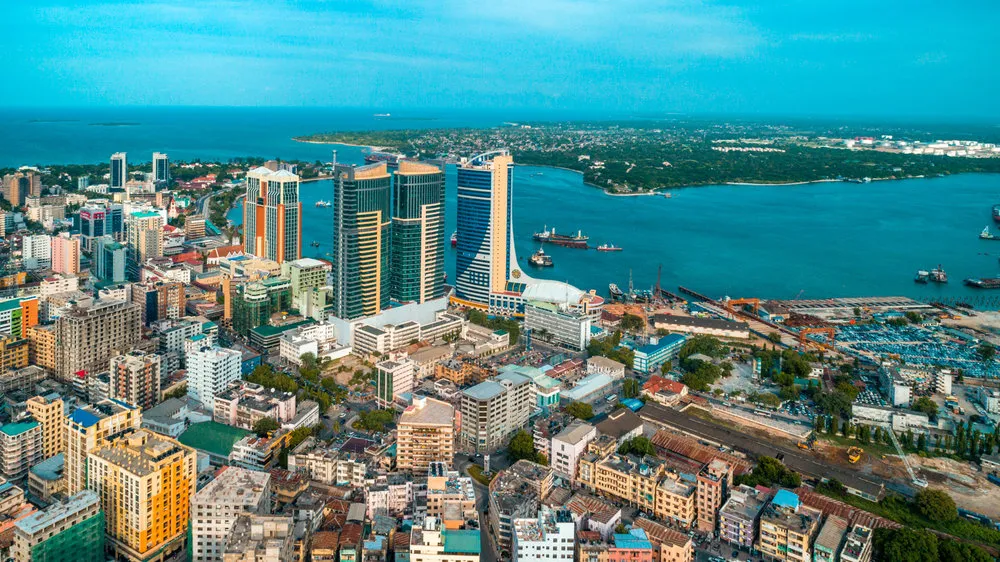Dar es Salaam, the bustling coastal city of Tanzania, is on the precipice of transformation. As it strives to meet the challenges posed by its burgeoning population and climatic conditions, embracing technology is an option and a necessity. With a high average temperature and rapid urbanization, the city must harness the power of technology to enhance its ecology, revolutionize transportation, and improve social services. These are the areas in which it can harness its objectivity:
- Advancing Ecology in a Humid Environment
Dar es Salaam’s climate is characterized by high humidity, with temperatures soaring to 34 degrees Celsius. This poses a significant challenge in maintaining a harmonious ecological balance in the city. To address this issue, technology can be a powerful ally through:
a) Smart Water Management: Implementing intelligent water management systems can help Dar es Salaam cope with its high humidity. IoT (Internet of Things) sensors and data analytics can monitor water levels, detect leaks, and optimize water distribution. By reducing water wastage, the city can contribute to preserving its environment. Concurrently, according to the International Institute Of Environment, only 98 per cent of the upper River Ruvu take-off can secure the annual water supply in Dar es Salaam, letting out the other part of the river that fluctuates. This causes a discrepancy in the provision of water on an average of 7-18 days.
b) Urban Greening: Green spaces are essential for mitigating the urban heat island effect. Technology can aid in the planning and maintenance of green areas. Drones can be employed for aerial surveys, while AI algorithms can optimize the distribution of plants to maximize cooling effects. Much of the coastal area strip along the Indian Ocean can be utilized for such an aspect.
c) Renewable Energy: Harnessing renewable energy sources like solar and wind power can reduce the city’s carbon footprint. Solar panels can be integrated into the urban landscape, and wind turbines can be placed strategically to generate clean energy. The Tanzanian Government plans to produce 6000 Megawatts from these sources by 2025, a vital period.
d) Air Quality Monitoring: Air quality can deteriorate with rising temperatures and industrial growth. Deploying air quality sensors connected to a central monitoring system allows authorities to take immediate action when pollution levels rise, ultimately improving the living conditions of the residents.
- Revolutionizing Transportation
As Dar es Salaam seeks to expand its transportation infrastructure, technology can play a pivotal role in creating efficient and environmentally friendly systems.
a) Dar es Salaam Bus Rapid Transit (BRT): The Dar es Salaam BRT system has been a significant step forward. Technology can be employed to optimize routes, monitor vehicle performance, and provide real-time updates to passengers to enhance its effectiveness. Mobile apps and digital payment systems can further improve the commuting experience.
b) Climate Fund for BRT: The Government’s pursuit of funding from the Green Climate Fund is a commendable effort to align transportation expansion with climate goals. With the right technological tools, these funds can be utilized effectively. Data analytics can help in making informed decisions on infrastructure and energy-efficient vehicles.
Speaking of the Green Climate Fund, as Tanzania Digest, we analyse the government talks with the GCF to finance the sixth phase of the Bus Rapid Transit (BRT) project, as the government sees $260M for the project. Please read the insights here.
c) Intelligent Traffic Management: Dar es Salaam’s traffic congestion is a growing concern. Intelligent traffic management systems, with the aid of cameras and sensors, can optimize traffic flow, reduce bottlenecks, and minimize travel time. Machine learning algorithms can predict traffic patterns and suggest alternative routes.
d) Sustainable Mobility Solutions: Encouraging eco-friendly transportation options like electric buses and shared mobility services can reduce the city’s carbon footprint. Charging infrastructure for electric vehicles and bike-sharing programs can be promoted with technology-driven incentives. E-mobility startups such as GrowTri are accelerating the use of E-tuk tuks and motorbikes; hence, the Government should accelerate the policy governance and the distribution of funds to enhance research, development and deployment of such technologies learning from countries like Kenya.
- Enhancing Social Services
As Dar es Salaam grows towards mega-city status, the demand for improved social services becomes paramount. Technology can be a catalyst for this transformation.
a) Education: With the help of e-learning platforms and digital resources, access to quality education can be expanded. Virtual classrooms can bridge geographical gaps, making education more accessible to a larger population.
b) Healthcare: Telemedicine and mobile health applications can ensure better access to healthcare services. Remote consultations, electronic health records, and health monitoring apps can enhance the healthcare system’s efficiency.
c) Digital Governance: Technology can facilitate transparent and efficient governance. Online services for public utilities, digital voting mechanisms, and e-governance platforms can empower citizens and streamline administrative processes.
d) Public Safety: Surveillance cameras, emergency response apps, and predictive policing algorithms can enhance public safety. Technology can enable quicker response times and more effective crime prevention.
Dar es Salaam’s journey towards becoming a mega-city with up to 12 Million residents by 2030 is marked by ambitious goals and significant challenges. Embracing technology is not an option but a necessity in this transformation. From improving ecological sustainability in a humid environment to revolutionizing transportation and enhancing social services, technology offers the key to success.
Integrating innovative solutions, data-driven decision-making, and the effective use of climate funds can pave the way for a brighter and more sustainable future for Dar es Salaam. With suitable investments in technology and a commitment to innovation, the city can thrive while preserving its natural beauty and improving the lives of its residents.

